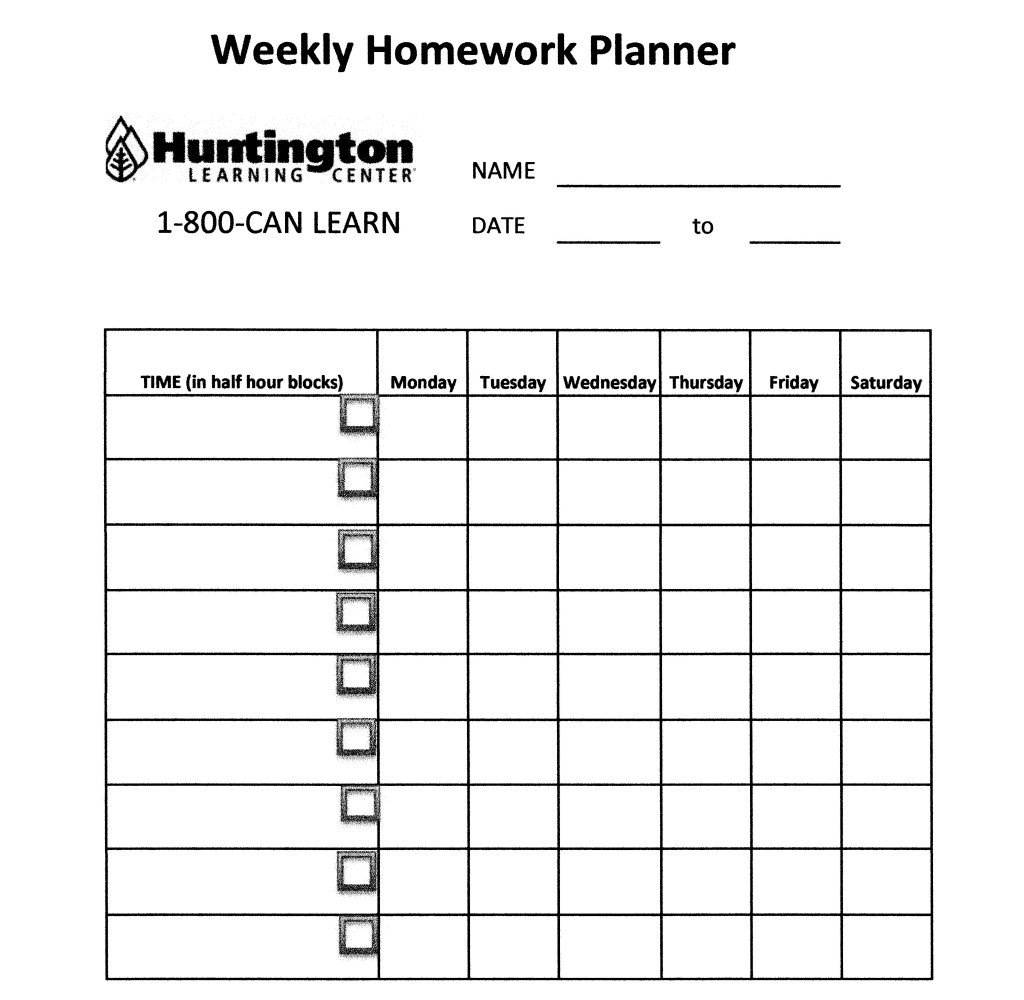A Good Beginning
Here we are again! It’s August and school is getting ready to start. But last year didn’t end well and there are signs that this year is not going to be much better. What can you do to help your kids have a better year this year than they had last year? It all starts with structure and organization!
Step 1
Two to three weeks before the first day of school, talk with your child about last year and about what went well and what did not go well. Find out if there are some areas where you disagree about the successes or lack of success. To make a new beginning, each person in the family needs to realize that changes must take place. So before the year starts, sit down with your child and get his feedback on the previous year.
Create a plan for studying, not just for doing homework. To be successful in school, students need to study every subject every night whether they have homework or not. Yet, studying is only beneficial if a student knows what to study and how to study it. As parents, we frequently assume that students know how to do this but many times they don’t. A major part of what we do at Huntington is help students figure out how and when they need to study. To create a study plan, you’ll need a weekly calendar, similar to the one below, that is divided into half hour blocks.
Step 3
Hold your child accountable for his own responsibilities. As parents, we must set our children up to succeed but not do the work for them. To hold him accountable, use the calendar that you’ve organized with him. He must do his “job” in order to earn the right to have free time. Remember that it is your job to set him up to succeed, not to succeed for him! Allow him to turn into a responsible person!
Step 4
Make sure your child writes down his assignments on a daily basis. He could use a typical agenda or create an online agenda but he must write down his assignments. It’s his responsibility to write in the agenda; it’s not your responsibility to look at the teacher’s website. Even if the teacher writes assignments on her website, students should write their assignments in their agendas.
Step 5
If your child had academic difficulties last year, it’s a good idea to bring him into Huntington for a skills assessment before school starts. Then, within the first month of the school year make contact with each of your child’s teachers. If he has been receiving remedial help over the summer, ask for a conference between the tutors who have worked with him and his new teachers. Everything you can do to start this year on a positive footing will pay benefits all year long. Remember… it is your job to set him up to succeed and his job to succeed!
Step 6
Recognize that a sleepy child cannot pay attention in class. Focusing on the idea that it is your job to set him up to succeed and his job to succeed, create a consistent bedtime hour that allows him the opportunity to get plenty of sleep.
Step 7
If you’ve set him up to succeed by implementing organization and structure at home and he is still not doing well on tests and quizzes, he is missing something. Perhaps he hasn’t learned how to learn. Talk to his teacher to determine what she has seen in class. Then consult educational professionals outside of the school to find out if he is not succeeding because he is missing certain basic skills. Be cautious about trying to “label” him, however. The important thing is to find out if he has the skills to succeed or if he doesn’t have them. Be sure to call us at Huntington if you think he might be missing skills because we can easily get to the bottom of things.
We know we cannot give a child self-esteem. We cannot give him self-confidence. A child must earn it himself. Setting him up to succeed empowers him to be the best he can be. Once this habit is set, he should follow it not only through high school but through his college years also!
Jackie Pace, M.Ed.
Executive Director
Huntington Learning Center – Charlotte
4701 Park Rd., Charlotte, NC 28209
(704) 522-7511
Huntington Learning Center – Huntersville
9601 Holly Point Dr., Huntersville, NC 28078
(704) 896-9699




4 comments
On the weekly planner, what is the little square under the Time column for?
On the Activity Planner posted, what is the little square under the Time column for?
Thank you,
Erika
Hi Erika,
The little square is for you to use at your discretion. Personally, I prefer to note in the square HW or S, meaning this half hour is for HW time and this half hour is for Studying time. Students should study and do homework. However you might use it as a checking system and initial it after your child works for that specific time.
I hope you’ll find the homework planner a good tool this fall!
Jackie
Thank you Jackie 🙂